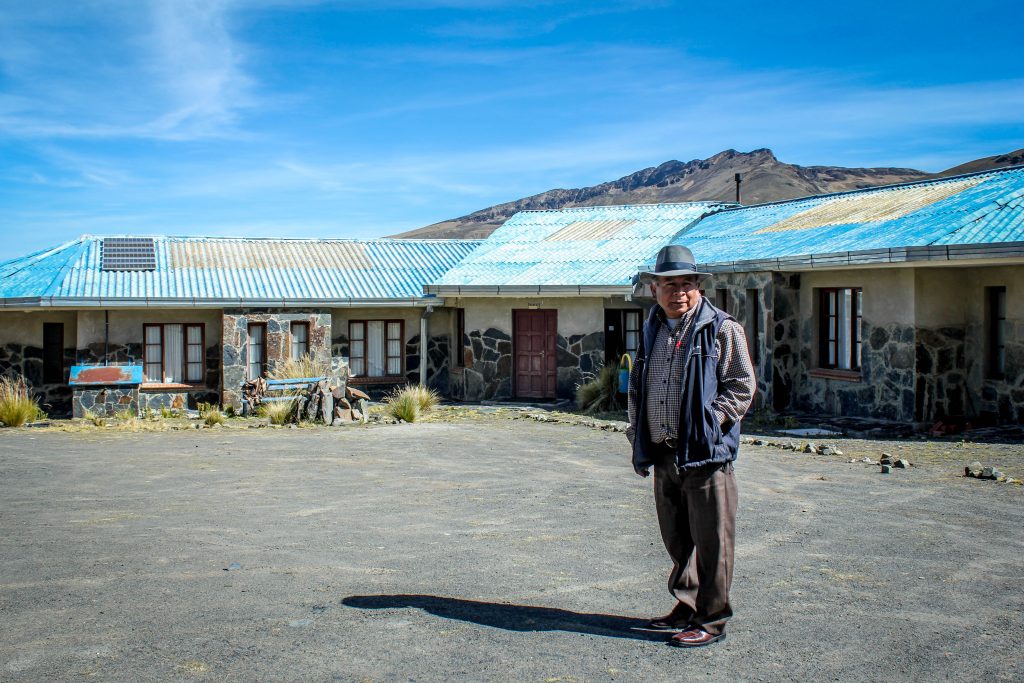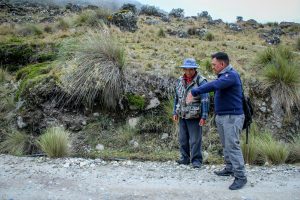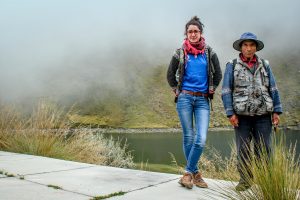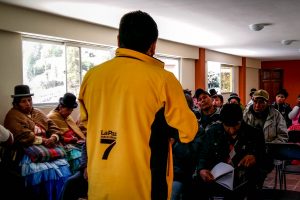
Sustainable tourism, theme of the 71st International Seminar and key sector for development in Bolivia

Roberto Poma, Manager of the eco-hostel in Pampalarama
The impact of tourism on a country’s economic and social development can be enormous. It can increase trade and investments, and create direct and indirect employment opportunities. It can also respond to the need to protect cultural heritage, traditions, and the environment. In Bolivia today, the tourism sector accounts for less than 7% of GDP. However, the country enjoys considerable advantages, such as the diversity of its landscapes and the richness of its culture. While these could be leveraged to create more economic opportunities, for the time being these attractions are accessible to the more adventurous tourists, who are ready to travel despite a lack of information and appropriate infrastructure. With 43% of its population living below the poverty line, Bolivia is the poorest country in South America. The development of community and sustainable tourism represents a real opportunity for communities to improve their living conditions.

Emilio Alanoca, La Paz Maravillosa, discusses access to water for tourists in the Laguna Viscachani hostel
To put together the 2017 International Seminar we are grateful for the support of two local partners: La Paz Maravillosa, the municipal tourism development agency, and the Universidad Católica Boliviana, one of the most prestigious universities in the country. By partnering with these institutions, participants will be better equipped to reflect on possible cross-sectoral collaborations and ways to foster the development of sustainable community tourism in the two targeted communities.

Meeting with the manager of the Laguna Viscachani hostel, Llaullini, to improve accommodation for tourists.
As the International Seminar Coordinator, my role is to oversee the event’s programming and logistics. It is with this in mind, I visited Llaullini this past Saturday with my Bolivian counterpart and a colleague from La Paz Maravillosa to refine this year’s Seminar program. During a community meeting, we had the opportunity to present the International Seminar to members of the community and to discuss our respective expectations. We invited them to participate in focus groups to share their experience of and vision for tourism in their community with the Seminar participants. The resulting exchanges presented some challenges. Some of the community members told us that outsiders have come to Llaullini in the past with the ambition to make a difference, but that the promises made to them were never kept.
José Miguel Cocarico, La Paz Maravillosa, adresses the Llaullini community
The challenge is considerable. We will have to remain humble and attentive while ensuring clear and frequent communication with the communities. But I am convinced that the knowledge, skills, and dynamism of the 21 student leaders and of the Uniterra local partners will make a positive contribution. Stay tuned with the hashtag #SIBolivia2017 on social media! -- Uniterra is a leading Canadian international development program that is jointly operated by WUSC and CECI. Each year, 600 volunteers contribute their time and experience to positive and lasting change towards a more equitable world by dedicating a few weeks to two years of their lives to international volunteer work. The program also provides opportunities to get involved in Canada and play an active role in combatting poverty. The Uniterra program receives funding from the Government of Canada, provided through Global Affairs Canada.